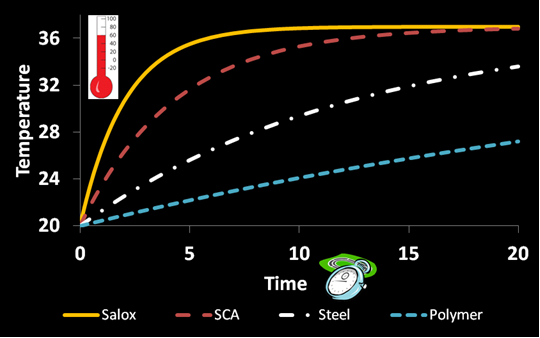Which material should I choose for my bit?
Which material should I choose for my bit?
Materials are also influential and there are many different types used in the making of bits:
Plastic: This type of material does not slide over the skin as readily as metal and there is always some surface drag. When these bits are used for faster work this excessive friction can cause rubbing. However, new polymers have recently been included in bits with great success eg. Trust, Beris and Bombers have some amazing new options that have helped many horses with bitting issues. The lifespan of a plastic bit is typically a lot shorter than that of a metal one.
Stainless steel: This is still extensively used and is an extremely hard and cold metal with very low thermal conductivity - this can cause horses to inwardly fixate on the presence of the bit, rather than the signals through the rein. These bits are typically less expensive than other options however.
Neue Schule Salox Gold: Neue Schule has developed their own unique alloy for their bits that is warm, soft and neutral in taste.
The unique Salox Gold possesses a high thermal conductivity. This means that the bit will warm to mouth temperature quickly and become ‘neutral’ to the horse, meaning that they are less likely to inwardly fixate on the mouthpiece and instead will be receptive to all the rider’s aids.

Occasionally, the horse’s bit may come into contact with the incisors (as we put the bit in) and the premolars. When this happens, we need to ensure that it doesn’t cause discomfort or damage to the tooth itself. Salox differs from standard stainless steel and other copper alloy bits in that it is a slightly softer metal, allowing it to safely absorb impact forces whilst protecting tooth enamel. This can make the mouthpiece easier to accept by the horse.
Neue Schule aims to keep the bit comfortable but neutral in the horse’s mouth. We don’t want our horses to inwardly fixate on the bit, but instead be receptive to all our aids. A mouthpiece that doesn’t taste or emit a smell is one that will remain neutral in the mouth - after all we don’t want our horses chomping and sucking at the bit because it tastes sweet or is flavoured! Likewise, flavoured mouthpieces can lead to over-salivation in the horse, which can often be misconstrued as acceptance. There is no evidence that over salivation means the horse is accepting the bit, and the horse cannot physically swallow this excess saliva and breath at the same time. Over-salivation may therefore impact on performance, particularly during faster work.
Bombers bits sweet iron: Bombers Bits are made from a unique sweet iron material. This encourages salivation and helps the horse accept the bit better.